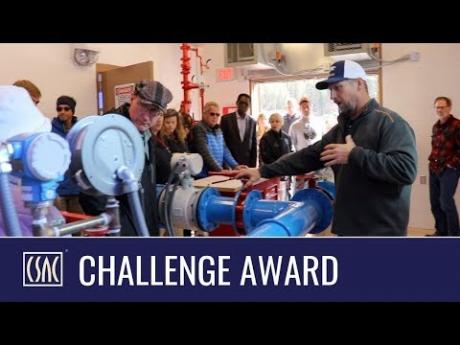Forum Helps Ensure Safe Drinking Water Across California
Placer County Taps Into Statewide Expertise for Workshop, Trainings and Collaboration
Mark Twain is often credited with saying “whiskey’s for drinking and water’s for fighting.” Certainly, in drought prone-California, water is a complex and contentious issue. And according to Wesley Nicks, Placer County Environmental Health Director, nothing is more critical, more imperative than safe drinking water for California’s communities.
However, with 7,600 different public water systems in California and only a small percent serving entire cities, explains Placer County Water Agency Technical Services Director Brent Smith, small water systems face many challenges to comply with regulations and oversight at the federal, state and county levels.
Placer County’s Environmental Health Division encountered some of these challenges head on as one of 30 counties implementing a California State Drinking Water Act program. While designed to ensure that water systems are standardized and meet code requirements, many counties face challenges in adequately funding activities that ensure local water is safe, leaving little to no resources available to train water professionals.
Recognizing the need to bring small water system operators and regulators together, Placer County’s Environmental Health Division spearheaded the annual Statewide Forum to Ensure Safe Drinking Water in 2017, with help from grant funds from the California Department of Public Health.
“The Forum offered opportunities for collaborative training, so regulators could understand issues from the operators’ point of view, and the operators/engineers can understand the issues from the regulators’ point of view,” said Nicks. “I was surprised to find that no one had done it before.”
Small drinking water systems serve 200 houses or less and tend to be supplied by groundwater. Population growth and the rural/urban interface mean resources tend to be scarce and more susceptible to drinking water shortages or contaminants in small water systems. The forum provides a platform to develop collaborative approaches between the regulatory bodies and the owners/operators of the systems.
“That’s really what the exciting part is, hearing what the issues are from the operators and the regulators, and coming together to solve the problem,” said Daniell Pohlman, Registered Environmental Health Specialist with Placer County. At the Forum, “regulators like me get to learn more about the valves and pumps that operators deal with every day… we can really learn from each other.”
Placer County also collaborated with the American Water Works Association to design training content on topics ranging from overviews of new regulations to water supply disinfection. Training modules included presentations, videos, practice exercises and more, with continuing education units awarded to attendees to keep certifications current.
Thanks to a partnership with Squaw Valley, LLC, the funding available to launch the original forum can also sustain the momentum into the future. “As a drinking water provider themselves, Squaw Valley Alpine Meadows wanted to be a partner. They allow us to use their facilities for the forum and we’ve even had the chance for field trips to look at their hands-on systems in place,” said Nicks.
While the first Forum in 2017 was well attended, interest only grew for the sophomore event. More than 100 attendees representing 40 drinking water systems in 36 counties statewide participated in the second forum, with expressed interest exceeding meeting capacity.
Born of innovation and one county’s experiences, Placer County’s Statewide Forum to Ensure Clean Drinking Water is now an essential clearinghouse for counties and local water systems to access trainings and information in a collaborative, solution-driven approach. With funding available for 4-5 future forums, counties and water systems operators will be able to convene and address water regulations as they continue to evolve, and keep safe drinking water flowing throughout California.
This Placer County program is a recipient of a 2018 CSAC Challenge Award, which spotlights the most innovative programs in county government.












































